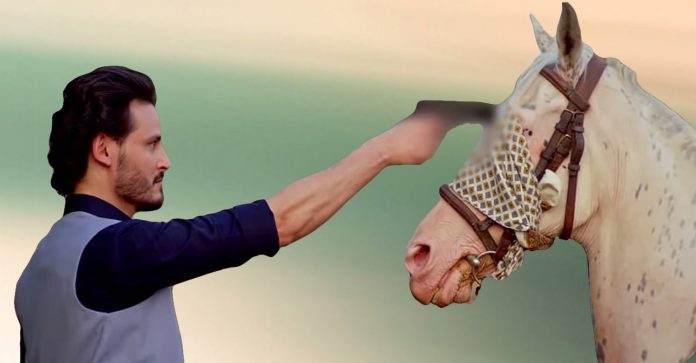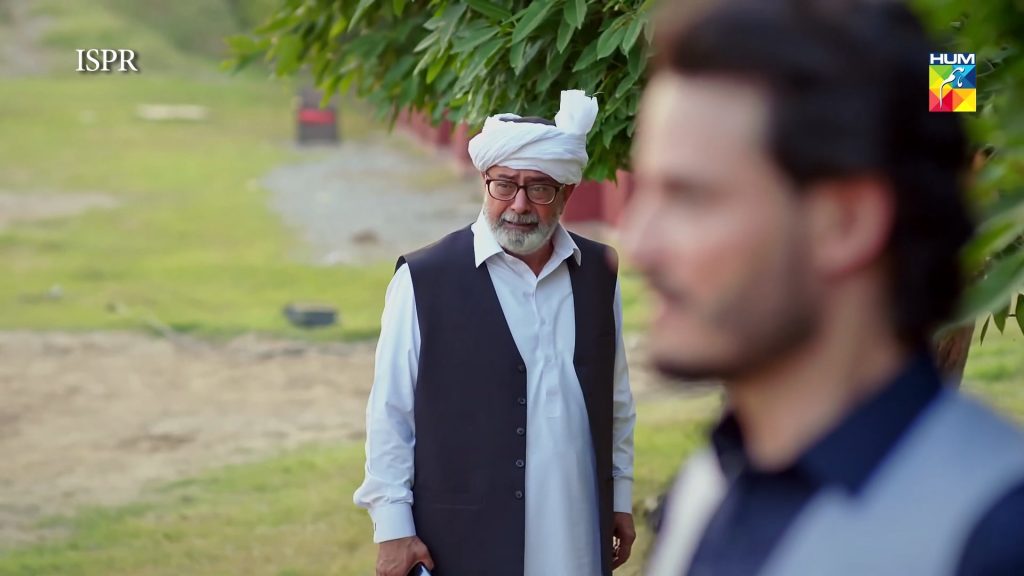Ehd-e-Wafa premiered to much fanfare and four episodes in, the drama continues to trend on social media every Sunday. The camaraderie and adventures shared between the group of four friends as they navigate through formative years of their lives are really a welcome change from most of the dramas on-air. However, the recent episode of the drama trended on social media for entirely different reasons.
A scene in that episode depicted one of the four central characters Shahzain, played by Osman Khalid Butt, shooting a horse. The scene sparked much outrage on social media for being crude, depicting violence and cruelty to animals, and for being inspired by a hit BBC drama series Peaky Blinders. The reactions to the scene ranged from rage, disgust, mockery, to open accusations against the actor for being the main villain in agreeing to shoot such a scene in the first place. All of this got us wondering, was that scene really all that atrocious to warrant such reactions?
Necessary context of the scene
A full disclaimer – we are not endorsing any implied animal cruelty or justifying it in any way whatsoever. This piece is merely discussing the scene in the context of the drama’s story and then using that context to comment on the commentary it received.
As established in the drama, Malik Shahzain hails from a feudal background and his spoiled and carefree attitude is encouraged by his grandfather. His core values and beliefs are what one would expect from a young feudal lord. He is the kind of guy who failed through his board exams for years and ultimately dropped out of school without even finishing 12th grade. Clearly being educated and enlightened is not among his life priorities.
So, when a character that has already been established to be impulsive and unsympathetic towards anyone he does not deem worthy of his companionship, gets angry enough to do a cruel act, it should hardly come as a shock. The intention behind depicting a scene in which a horse who did not win in a race is being shot is not to glorify the act. Nowhere in the scene or in the drama has this bit shown in a voyeuristic or pleasant way. Showing such a horrendous act, which might not be an uncommon occurrence in the areas where the character hails from therefore is not something that ought to be criticized so harshly.
At any rate characters in the play are multi-dimensional beings and a fictional character on television mirroring multi-faceted people one encounters in real life should not come as a surprise. It is rather part of character building and essential for effective storytelling. Besides, Ehd-e-Wafa is a drama depicting the journey of four friends through life. And as we know, life journeys are never all about smooth sailing.
Undue criticism towards the actor
There’s a certain section of criticism that is directed towards Osman Khalid Butt for agreeing to play Shahzain, a fictional character. It’s fascinating to see someone like Osman who has always been vocal and is one of the first in line to speak about issues like sexual harassment against women, minority rights, social issues, etc. to be so easily questioned here about his integrity based on just one scene. Where is all this judgment coming from? Osman’s previous two dramas, Baaghi and Surkh Chandni, gave him the chance to play characters that defied the toxic masculinity rampant in the “heroes” of today’s dramas. If it’s anyone who has deliberately opted for characters that reflect his own personal values, it’s Osman. But at the end of the day, Osman is an actor and it is very well within his rights to play a character with grey shades and one who indulges in a questionable act.
It is also ironic how the actors who have played murderers and rapists in dramas tend to get glorified by both the serials as well as the audience. And here we have an actor playing a character whose one cruel action, which is plausible given the context of his character’s situation, is being vilified so intensely. Especially when the actor himself has agreed that whatever the character did was wrong.
Final Word
I confess that I have not watched Peaky Blinders so I was unaware of any inspiration Ehd-e-Wafa may have drawn from it. Only the show’s writer and director can vouch for the scene’s originality. However, judging purely on the basis of how the scene played out in Ehd-e-Wafa, it did not seem out of place to me. Having talked to a few people who are well aware of the customs and lives of feudal lords, as well as my own knowledge of media and literature, the implied shooting of the horse was a creative decision that was well suited to the character’s context as well as for the story the drama aims to tell.
As for all the criticism leveled against Osman Khalid Butt all I can say is that actors should not be judged on the choices of their characters. The world of social media would become a somewhat better place if this fact is accepted; the sooner the better.







